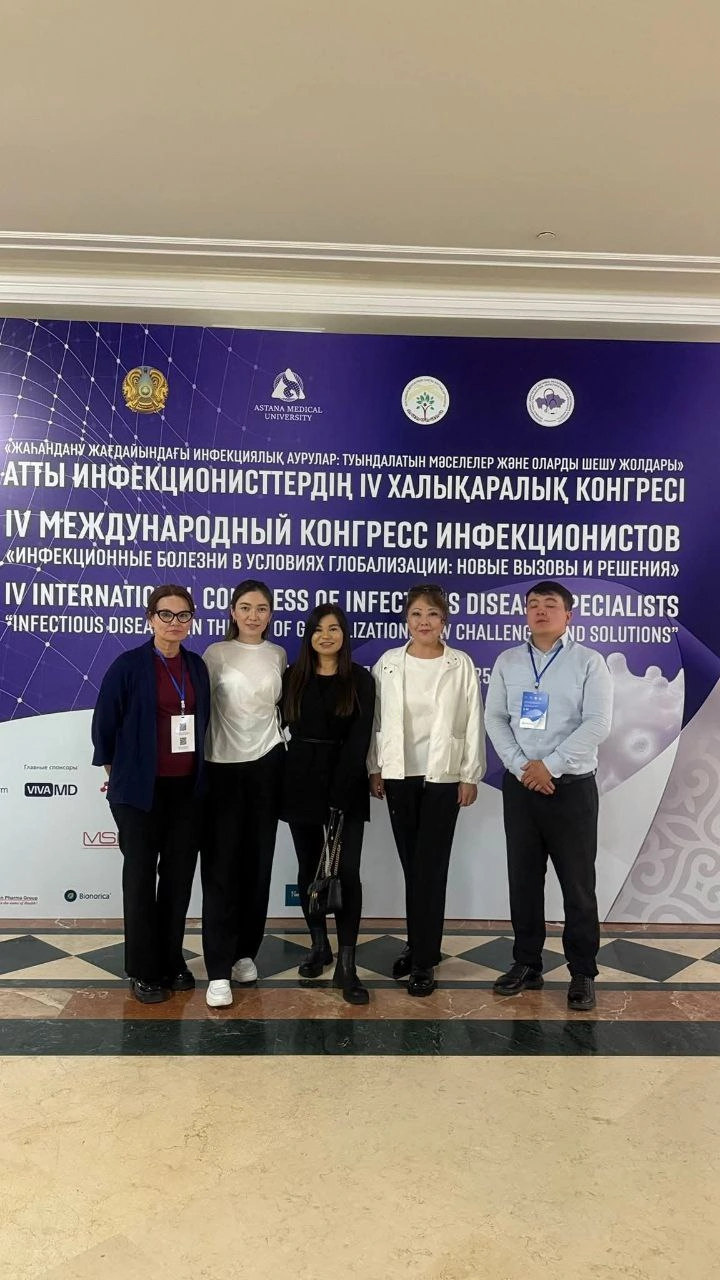Delta Medical: A Swiss Pharmaceutical Company in Kazakhstan

With 20 million potential patients or more, Kazakhstan is a tempting market. Investments in medical infrastructure and significant government funding create the conditions for growth.
Seizing this opportunity, however, requires local know-how. Byzantine regulations, fragmented distribution and complex stakeholder dynamics pose a risk for external companies.
Shrewd pharmaceutical managers who act now can sidestep these pitfalls. Now is the time to enter Kazakhstan before the complexities and competition intensify.
The key is to work with an experienced player in the country like Delta Medical. Our regulatory expertise simplifies market access. Our supply chain prowess simplifies distribution. And our commercial experience opens doors.
20 Million Potential Patients Ripe for Innovative Medicines
Kazakhstan has a very fast growing, and young, population. When we started in Kazakhstan, the population was 15 million. Population has grown over 30% in a relatively short time. Most countries have falling demographics, but Kazakhstan is a leader, only outdone by Uzbekistan, which now has 30 million.
In the past, Kazakhstan was largely agricultural, but with the oil and development, people have flooded to the cities. While the landmass of Kazakhstan is huge, there are significant population centers where it is cost effective to work.
Table: Population of Top Cities in Kazakhstan
| Name | Population |
| Almaty | 2,161,797 |
| Astana | 1,354,507 |
| Shymkent | 1,192,120 |
| Aktobe | 559,911 |
| Karagandy | 515,632 |
| Taraz | 427,356 |
| Karagandy | 359 243 |
| Kyzylorda | 353 248 |
| Oskemen | 352,894 |
| Pavlodar | 334,096 |
| Atyrau | 316,468 |
| Semey | 308,143 |
| Temirtau | 177 465 |
Overview of Kazakhstan’s Healthcare Infrastructure
The healthcare infrastructure across Kazakhstan consists primarily of government-owned and controlled medical facilities. Approximately 80% of all hospitals, polyclinics, dispensaries and other health centers in Kazakhstan are owned and operated by the state.
This includes over 1,000 hospitals and more than 3,400 ambulatory clinics and outpatient facilities spread across the vast geography of Kazakhstan. The country’s healthcare infrastructure aims to provide broad access to care for the 18+ million population.
However, much of the infrastructure, especially in rural regions, consists of dilapidated, outdated buildings and lacks modern medical equipment. There is an imbalance in the system related to primary care versus specialized hospital care. Resources have concentrated more in costly inpatient hospital settings rather than community-based primary care.
| Category | Number | Additional Details |
| Hospitals | 818 | |
| Ambulatory Clinics | 3,450 | Outpatient clinics |
| Doctors | 79,409 | 25 per 10,000 population |
| Pharmacies | 8,005 | 40 per 100,000 population |

Scale and Distribution of Healthcare Facilities
To serve its wide-spread population across a geography larger than Western Europe, Kazakhstan has developed an extensive system of medical facilities. This includes central national hospitals focused on areas like oncology and cardiac surgery, as well as smaller rural clinics and regional multi-specialty hospitals and polyclinics.
Urban areas like Almaty and the capital Nur-Sultan (Astana) offer the most modern infrastructure along with skilled specialists. However, rural communities often deal with crumbling clinic buildings and staff shortages.
The Ministry of Healthcare frequently rolls out modernization initiatives. But budgets only allow for gradual upgrades spread thinly across thousands of facilities.
Recent data shows over 818 hospitals across Kazakhstan with around 96,000 total beds – a relatively high rate. This indicates the system’s hospital-centric structure inherited from the Soviet times. However, Kazakhstan has been reducing the number of hospitals. 10 years ago there were 1009 hospitals, thus 20% have been closed.
In addition, there are a total 3,450 government and private ambulatory clinics and polyclinics providing primarily outpatient care. The private sector is steadily growing and of the 3,450 clinics, 1178 of them are private.
Specialized Medical Centers in Kazakhstan
While smaller locales contend with infrastructure gaps, Kazakhstan has developed first-rate specialized national medical centers focusing on areas like:
- Oncology
- Cardiac Surgery
- Neurosurgery
- Pediatrics
- Diagnostics
For example, the National Research Cardiac Surgery Center in Nur-Sultan provides leading cardiovascular care not just for Kazakhstan but also patients across Central Asia.
The National Research Center for Oncology and Transplantation is Kazakhstan’s prime cancer hospital with advanced diagnostics and treatments.
These and other national centers aim to provide global-caliber care and medical tourism services. They also conduct scientific research together with the country’s expanding medical universities.

Table: Key Governmental Organizations and Healthcare Institutions
| Name | Description |
| Ministry of Healthcare | Main government body overseeing healthcare policy and the health system |
| National Research Center for Oncology and Transplantation | Country’s main specialized cancer hospital and research institute |
| National Research Cardiac Surgery Center | Kazakhstan’s leading specialized heart hospital located in Nur-Sultan |
| Republican Diagnostic Center | National specialized diagnostics and treatment center |
| National Research Center for Maternal and Child Health | Research and treatment center focused on maternal, children’s and reproductive health |
| National Center for Neurosurgery | Specialized neurosurgery hospital and research institute |
| Astana Medical University | One of Kazakhstan’s leading medical universities with bases at major national hospitals |
| Asfendiyarov Kazakh National Medical University | Top medical university in Almaty, founded in 1931 |
| West Kazakhstan Marat Ospanov State Medical University | Medical university in Aktobe focused on innovation and student-centered approach |
| Karaganda Medical University | Kazakhstan’s first medical institute outside Almaty, established in 1950 |
| Kazakhstan School of Public Health | Trains public health specialists, founded in 1997 |
| National Research Center for Health Development | Research center under Ministry of Healthcare focused on health system analysis and development |
| Scientific Center of Pediatrics and Pediatric Surgery | Major pediatric research and treatment center located in Almaty |
| City Cardiology Center | Leading cardiology hospital in Almaty, founded in 1896 |
| National Healthcare Chamber | Organization representing medical workers and providing policy recommendations |
| Kazakh Research Institute of Oncology and Radiology | Cancer research and control programs institute located in Almaty |
| Republican Sanitary Epidemiological Station | Oversees disease surveillance, prevention and control programs |
| National Center for Health Development | Policy research institute under the Ministry of Healthcare |
| National Scientific Medical Research Center | Leading medical research institute located in Astana |
| National Laboratory Astana | Advanced diagnostics lab for screening, research and surveillance |
Funding Kazakhstan’s Healthcare System
Kazakhstan is working to reform healthcare financing with plans to increase public spending, expand insurance coverage, and reduce high out-of-pocket costs for patients. But progress has been gradual to date.
Overview of Healthcare Spending
Total health expenditure in Kazakhstan as a share of GDP has risen in recent years but remains low compared to most OECD nations at just 5-6% of GDP annually. This is far below the average level of around 10% for EU countries.
Public spending on healthcare specifically has stagnated at around 2-3% of GDP, one of the lowest rates globally. As a result, high out-of-pocket spending by patients makes up 34-38% of total health expenditures.
Key Sources of Healthcare Funding in Kazakhstan
There are several main sources of funding for Kazakhstan’s healthcare system:
- General government budgets: Funds medical facilities, salaries, public health programs
- Compulsory health insurance fund: Pays for care based on rates and services package
- Out-of-pocket: Direct payments by patients for treatment and medications
In terms of health insurance, Kazakhstan is transitioning to a single-payer model with a consolidated State Compulsory Medical Insurance Fund. This now covers all citizens for a basic package of free medical services.

Ongoing Reforms to Healthcare Financing
Kazakhstan aims to transition towards a more sustainable healthcare funding model with the following reforms:
- Increasing public spending to 4% of GDP long term: Gradual budget rises to improve infrastructure and access
- Expanding health insurance coverage: Working towards universal coverage for expanded services
- Reducing out-of-pocket share to 15%: Lessening burden on citizens through public funding
However, fiscal challenges have impacted the timing and scope of financing reforms. The COVID-19 crisis also necessitated short-term emergency response spending…
Key Challenges Impacting Kazakh Healthcare Professionals
Several factors make pursuing and sustaining a medical career difficult in Kazakhstan:
- Low salaries across roles like nurses, paramedics and even specialty fields
- High workloads and stress due to understaffing and outdated processes
- Lack of modern medical equipment with infrastructure gaps
- Insufficient ongoing training programs like continuing education
These dynamics lead to low job satisfaction and drive personnel to switch careers or emigrate.

Reforms Seek to Boost the Healthcare Workforce
To strengthen its healthcare workforce, Kazakhstan is rolling out policies focused on:
- Raising salaries through incentive schemes and guaranteed public pay
- Increasing medical institute admissions to boost student numbers
- Creating digital continuing education programs for on-the-job physician training
- Securing international partnerships and funding
Table: Kazakh Medical Journals
| Name | Description |
| Journal of Clinical Medicine of Kazakhstan | International peer-reviewed journal publishing biomedical research, led by National Scientific Medical Research Center |
| Medicine | Monthly professional journal for doctors and researchers, published by Healthcare of Kazakhstan publishing house |
| Astana Medical Journal | Medical journal published in Nur-Sultan (Astana) led by editor Zh.Sh. Zhumadilov |
| Consilium | Medical journal published by Healthcare of Kazakhstan publishing house |
| Kazakhstan Journal of Medicine and Pharmacy | Open access, peer-reviewed journal covering medicine, pharmacy and healthcare |
Retail Pharmacy Market in Kazakhstan
The pharmacy retail market in Kazakhstan is a dynamic and growing sector, with approximately 8,000 pharmacies operating across the country as of 2023. The market is characterized by a mix of large pharmacy chains and independent pharmacies, each playing a significant role in providing access to medications and healthcare products for the population.

Pharmacy chains account for about half of the total number of pharmacies in Kazakhstan. The largest chain, Biosfera/Format, boasts 336 pharmacies nationwide and holds a 9.44% market share as of the first half of 2023. Other major players include Rauza Ade/Amazon, Zerde-Farma, Gippokrat MFK, and Europharma. These chains often have a strong presence in major cities such as Almaty, Astana, and Shymkent.
Independent pharmacies make up the other half of the market, with around 4,000 standalone pharmacies operating across the country. These pharmacies are essential in providing access to medications in smaller towns and rural areas where chain pharmacies may not be present.
The pharmacy retail market in Kazakhstan is predominantly private, with few state-owned pharmacies. However, the government plays a crucial role in regulating the industry to ensure the quality and safety of medications and to control prices for essential drugs.
In recent years, there has been a growing trend towards online pharmacies and delivery services, such as Apteki Dobraya, which offer convenience for customers. Additionally, pharmacy associations like ASNA Kazakhstan and the Alliance of Pharmacy Chains in Kazakhstan work to promote the interests of the industry and foster collaboration among pharmacies and pharmaceutical manufacturers.
Despite the growth and development of the pharmacy retail market in Kazakhstan, challenges remain in ensuring consistent access to high-quality medications and promoting the adoption of good pharmacy practices (GPP) across all pharmacies in the country.
Time is Now for the Kazakhstan Pharmaceutical Market
Kazakhstan represents an attractive emerging market for international pharmaceutical companies seeking to expand their global footprint. With its growing economy, investments in healthcare infrastructure, and reforms aimed at increasing access to medicines, Kazakhstan has strong fundamentals to support the entry and growth of innovative healthcare companies.
Delta Medical, with over 25 years of on-the-ground expertise in Kazakhstan and the broader Eurasia region, is an ideal partner for pharmaceutical companies looking to navigate the complexities of entering this market. Our extensive capabilities in regulatory affairs, marketing, medical affairs, and supply chain management enable international partners to efficiently register, distribute, and promote their products to Kazakh healthcare providers and patients.
For pharmaceutical companies committed to improving patient access to innovative therapies in Central Asia, Kazakhstan is a pivotal growth market and Delta Medical is a trusted in-country partner. We encourage interested healthcare companies to contact our team to discuss partnership opportunities for entering Kazakhstan and expanding across the region. With our guidance and robust in-country presence, we can accelerate your company’s regional growth and impact.
FAQ
Where is the Delta Medical office in Kazakhstan?
The Delta Medical office in Kazakhstan is located at Arai Business Center, Kazybek Bi St 20А, Almaty 050010, Kazakhstan

How to call Delta Medical in Almaty?
To call Delta Medical in Almaty use the phone number +7 727 332 20 80
Is Delta Medical Hiring in Kazakhstan?
Delta Medical is often hiring people in Kazakhstan. For current vacancies, please check our CAREER page.
Where is the Headquarters of Delta Medical?
The headquarters of Delta Medical is located in the center of Zurich, in Switzerland.
Delta Medical at the Astana Congress of Infectious Disease Specialists
Event overview and why it matters The IV International Congress of Infectious Disease Specialists (Астана)…
Ukraine and Kazakhstan Advance in Radiotherapy and Nuclear Medicine
In recent years, Ukraine and Kazakhstan have made significant strides in the fields of radiotherapy…
Kazakhstan Grapples with Funding Challenges for Rare Disease Treatments
Kazakhstan is facing a dilemma in ensuring access to medicines for patients with rare diseases…


